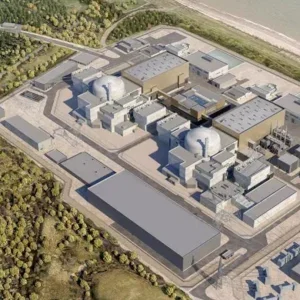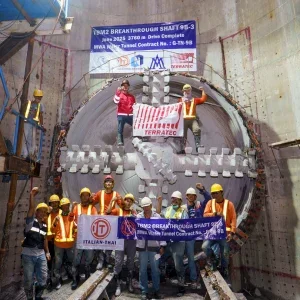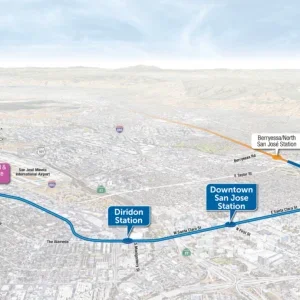Following a rapid replacement of Massachusetts Turnpike Authority chairman James Kerasiotes with Andrew Natsios, spokespersons for the Boston Central Artery/Tunnel (CA/T) Project are united in denying that federal funds for the project have been capped following accusations of cost over-runs.
An apparent ‘cover-up’ of the extent of over-spending by the former administration resulted in a change of personnel described by many close to the project’s management as ‘political’. Project finances have now been opened to up more public scrutiny and explanations.
An engineer from the project speaking last month’s North American Tunnelling conference made an oblique reference to the situation, and large projects in general. "If you can’t perform, your’e gone," he said. "One person cannot control the whole project, but the manager must be a strong negotiator."
Terry Brown, seconded as Director of Media Relations to the Massachusetts Turnpike Authority for the CA/T Federal Highway Administration told T&T International that the current total costs for the CA/T Project of $13.6bn could not be compared with the 1985 budget of $2.6bn which was for construction costs only. The early figure contained no allowance for inflation, the large additional mitigation costs gathered in smoothing the progress of the project, and additional construction costs which could not been foreseen in 1985. The predominant ground in Boston is old ‘fill’ in soft estuarine deposits, and this is one of the main causes cited for the increase in construction work over 15 years. The last comparable estimate was of $10.8bn in 1995, Brown claimed.
"The federal authorities are not capping the project’s funding; we are just not going to ask for any more," said Brown. "The Commonwealth of Massachusetts will pay for any extra."
Currently the federal goverment provides approximately 70% of the funding, and Massachusetts 30%, relfecting the ‘Interstate’ importance of the construction work which replaces mainly elevated routes built by the City of Boston in 1959. Around 80 000 of the 190 000 vehicle drivers which use the I-90/I-93 routes each day have no interest in travelling in Boston, only through or around it.
A large proportion of increase costs of the project are attributed to construction procedures to ensure that the life of the city remains as near as possible to normal. These measures include temporary works, traffic planning, dust and noise control, and utilities diversions.
"Closure of the existing routes would destroy the economy of the city," claimed Brown. "We are not allowed to do this and have been successful for over nine years. Instead the economy has boomed, with office occupancy at all-time highs, and real estate values climbing."
The other financial issue frequently raised by the local press has been the insurance trust fund set up to cover the cost of claims and insurance premiums for accidents and related matters, while earning interest on unused deposits. As a result of an extremely good safety record, claims to date have been low, and the media have questioned why extra funds are needed for the project whilst the insurance trust fund is growing. Brown pointed out that the fund had been planned for a loss ratio of 45% whereas claims have been only in the mid 20% range. At current trends the trust fund will be worth $800-900M at the end of its life in 2017, and consequently the insurance cost to the project would be zero.
‘We are not allowed in law to take the trust fund into the bottom line for the project as a whole." stated Brown.







